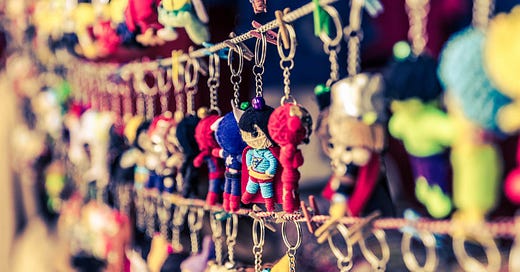To All the Keychains I’ve Loved Before
Notes on traveling, estrangement, and the keychains I bought for my father

In the winter of 2014, my pop and I are finally in a cab traveling to the center of Dublin, my pop’s birthplace, his home. While he looks out the window and takes inventory of what has changed, the taxi driver asks where he’s from. My pop’s accent is faint; no longer the thick brogue of his youth spent carousing in pubs and drink…
Keep reading with a 7-day free trial
Subscribe to Getting Crafty to keep reading this post and get 7 days of free access to the full post archives.



